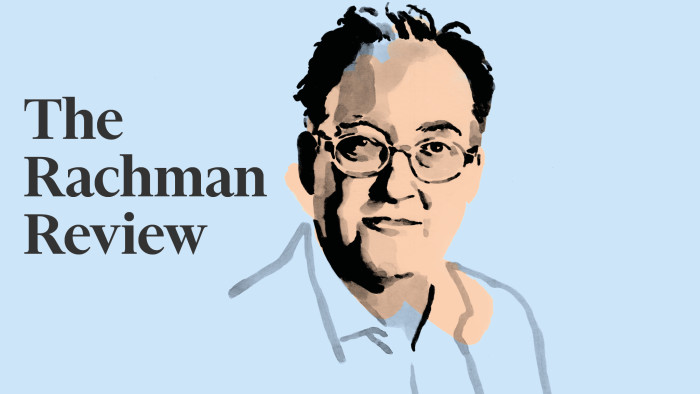Hariri’s resignation pitches Lebanon into further uncertainty

Roula Khalaf, Editor of the FT, selects her favourite stories in this weekly newsletter.
Lebanese prime minister Saad al-Hariri told the nation on Tuesday he had “tried to find a way out”. But after nearly two weeks of mass anti-corruption protests, he admitted he had met “a dead end” and resigned.
Mr Hariri’s move has deepened financial uncertainty in a country long plagued by political paralysis. Despite his appeal for Lebanon’s fractious political parties to work together to avoid economic collapse, analysts warn that it is unlikely his departure will force the sweeping changes protesters want to see.
The Mediterranean country has been brought to a standstill by almost two weeks of mass protests against the government and Lebanon’s failing political system.
However, Mr Hariri’s decision is not expected to satisfy the increasingly disillusioned demonstrators, who want to see more sweeping changes to the establishment. Kellun ya’ni kellun, roughly translating as “all of you”, was chanted in Beirut’s streets after Mr Hariri’s announcement.
Lebanon’s governance system is based on sectarian power-sharing that activists and analysts say has fostered corruption and mismanagement. They argue that the system gives the surviving leaders from Lebanon’s bitter 15-year civil war a stranglehold on power.
Underlining the fragile nature of Lebanese politics, this is the third time Mr Hariri has quit as prime minister.

But analysts such as Sami Atallah, director of the Lebanese Centre for Policy Studies, say the countrywide protests are the biggest challenge to both Lebanon’s post-civil-war “confessional” political system. They also say it threatens its economic model, which was established by Mr Hariri’s father Rafik, a postwar prime minister himself and one of the country’s wealthiest men.
“This is the revolution of the millennials,” said Roy Badaro, a veteran economist.
Demonstrators have blocked roads and formed human chains as they blame Lebanon’s squabbling political class for corruption, joblessness, high prices, poor government services and environmental degradation. A reform package past last week failed to defuse popular anger. Fearing a bank run, lenders have been shut for 10 days.
The risk is that the resignation of Mr Hariri and his government will not bring the change demonstrators desire, and will pitch the heavily indebted country into further uncertainty.
Under Lebanon’s postwar power-sharing agreement, the prime minister is always a Sunni Muslim, its parliamentary speaker a Shia and its president a Christian. The latter posts are both held by men aged over 80: Nabih Berri and Michel Aoun, respectively, who were civil war leaders.
Parties will now have to submit candidates for a prime minister to form a new cabinet. But it is unclear whether any of the names put forward will be sufficiently unsullied by corruption allegations to please the street activists.

Emile Hokayem, of the International Institute for Strategic Studies think-tank, said it would be difficult to make real change by simply swapping prime minister. “The interests of the established political class is to stall as much as possible and try to blame the protest movement for the ongoing economic collapse,” he said. “One cannot be optimistic, given the cast of characters we have.”
Economists said Mr Hariri’s resignation could increase the chances that Lebanon will have to take restructuring measures to deal with its fast-growing debt, which exceeds 150 per cent of gross domestic product.
Weekly podcast

Listen to the new weekly podcast from Gideon Rachman, the FT’s chief foreign affairs columnist, and listen in on his conversations with the decision-makers and thinkers from all over the globe who are shaping world affairs
Although Mr Hariri largely failed to push through much-needed reform, in the past he had succeeded in encouraging richer countries to help prop up Lebanon with economic support. Economists say the country badly needs a cash injection as crucial foreign currency inflows have slowed, worsening its trade deficit. Although Lebanon has never defaulted, there are concerns it might be unable to meet obligations to creditors.
But foreign donors are no longer forthcoming. Mr Hariri’s relations with the Sunni Gulf countries in particular were severely strained by the rise of Hizbollah, an Iran-backed Shia paramilitary group with a popular political arm that was the biggest winner with its political allies in last year’s elections.
There was a stark reminder of Hizbollah’s power on Tuesday: people identified as supporters of the group and its political ally Amal stormed a protest camp and injured peaceful demonstrators in a central Beirut square just before Mr Hariri’s resignation.

According to Mr Hokayem, Hizbollah and its Christian ally, the party of Mr Aoun, now “represent the counter-revolution”.
Hizbollah’s leader, Hassan Nasrallah, has insinuated that the protests have in part been stirred by foreign interference. He called on the government to remain in power.
Mr Nasrallah’s pro-status quo position has reflected his party’s entanglement with a system widely seen as rotten, according to Mr Atallah. Hizbollah “came into existence to challenge the system”, he said. “Now it came to salvage or save it from itself, and to do so explicitly.”
Mr Hariri, whose father was assassinated in 2005, has become the third leader in the Arabic-speaking world to quit his post under pressure from mass protests this year.
He was previously prime minister from 2009 to 2011, when his government collapsed after Hizbollah and its allies withdrew support. His second tenure was also been marked by turbulence: he temporarily resigned his post in 2017 during a trip to Saudi Arabia where he was detained and forced to quit by Crown Prince Mohammed bin Salman’s government.
Comments